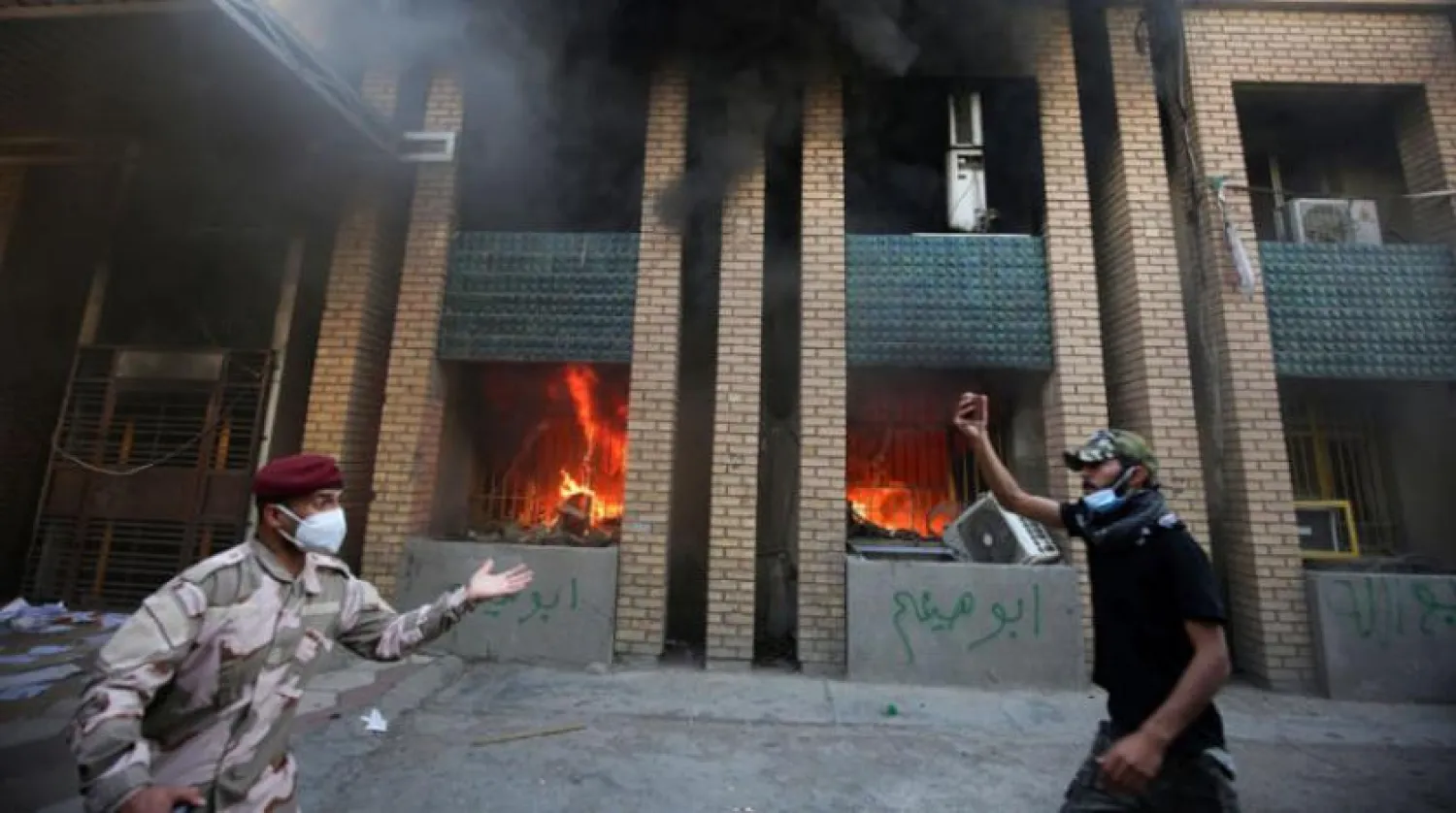Officials at the Kurdistan Democratic Party (KDP) headed by Masoud Barzani accused Iran-aligned groups within the Popular Mobilization Forces (PMF) of storming and torching their party offices in central Baghdad on Saturday.
Hundreds of Iraqi police officers and riot control units present in the area were unable to prevent the assault against the KDP headquarters.
The attack follows a host of raging threats PMF-linked perpetrators had launched against senior KDP official and prominent Iraqi politician Hoshyar Zebari, who had previously made harsh anti-PMF remarks.
He said that Baghdad must “clean the green zone” from “outlaw forces” within the PMF, members of which routinely target with rockets US facilities and interests in Iraq.
KDP sources, however, pointed out that the incident was sparked by PMF anger against a deal recently signed between Baghdad and Erbil to manage the disputed area of Sinjar.
“The arson is related to the recent Sinjar Agreement and not to statements made by Zebari,” sources told Asharq Al-Awsat.
“It is clear that the agreement dealt a painful blow to the PMF presence in Sinjar, because it explicitly stipulated their withdrawal from the region and ordered their replacement with regular federal forces,” they added.
The Iran-tied PMF has been severely attacking the federal Iraqi government and the Kurdistan region since the signing of the agreement last week.
“They do not want to lose their strategic location there (Sinjar), which grants them and Iran access to a transit route for supplies to and from Iraq and Syria,” sources explained.
KDP sources confirmed to Asharq Al-Awsat that the assault against KDP offices was staged by Iran-tied factions in the PMF.
Kurdistan Region President Nechirvan Barzani called on Baghdad to launch an investigation into the attack, calling it “a threat against peaceful coexistence.”









